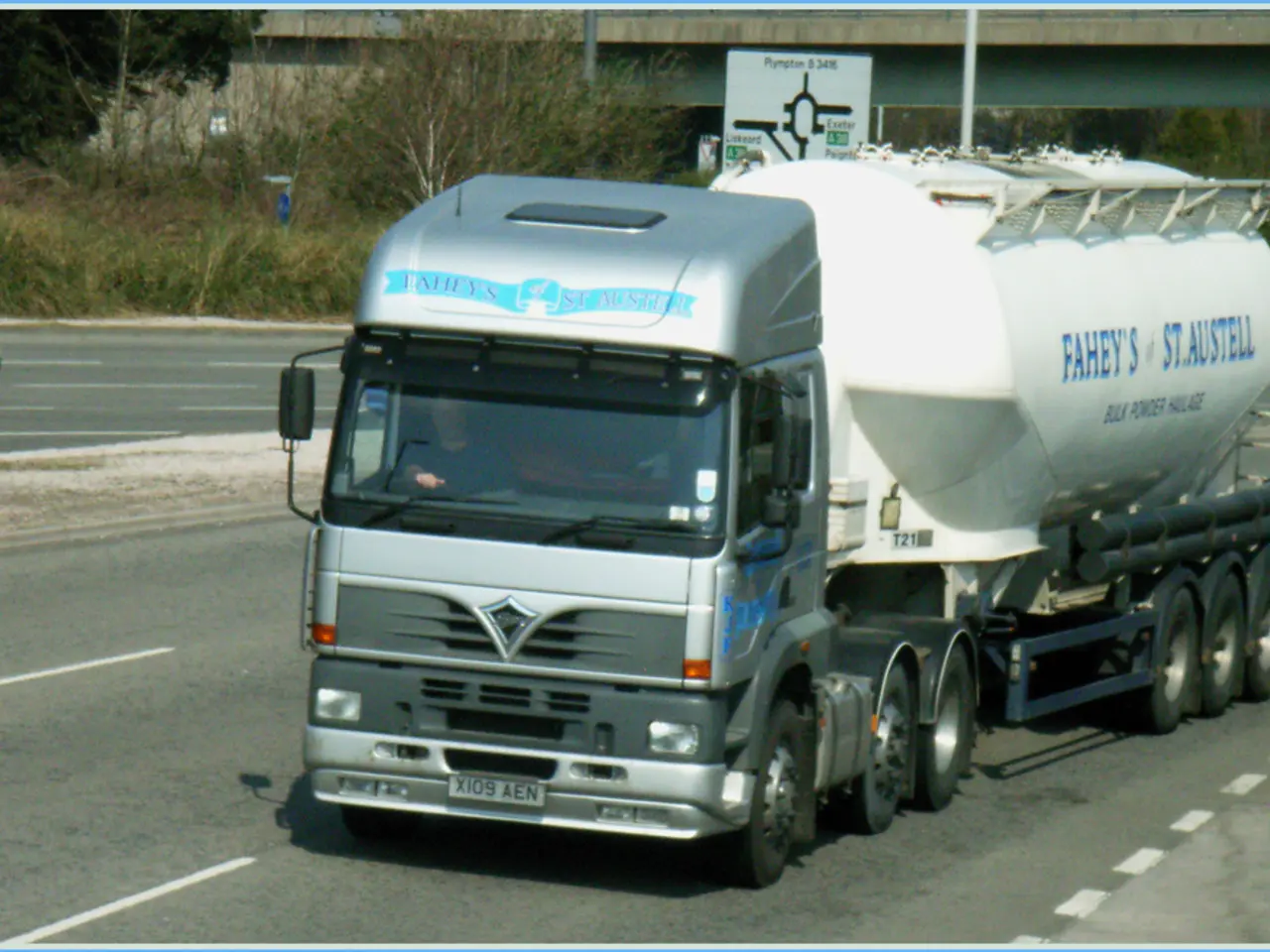Advocates from the economic teams of Germany and France push for the use of battery-powered trucks in freight transportation as a means to decrease carbon emissions, opposite to the support for hydrogen trucks.
In a joint statement, the Franco-German Council of Economic Experts and France's Conseil d'analyse économique have emphasised the importance of decarbonising road freight transport. This move comes as emission reductions in the transport sector continue to lag behind other sectors, despite ambitious EU policies.
As the EU's largest economies, France and Germany have a special responsibility to lead the way in freight transport decarbonisation. The road freight transport sector remains a major emitter of greenhouse gases.
In their statement, the economic advisors have championed battery-electric trucks over hydrogen fuel cell trucks for decarbonising freight transport. This preference is primarily due to current infrastructure maturity, efficiency, and economic feasibility considerations.
Battery-electric trucks have gained more traction in the heavy-duty segment due to several factors. More mature charging infrastructure, energy efficiency, cost-effectiveness, and policy incentives all favour battery-electric trucks. Stringent emissions regulations and carbon neutrality goals in Europe have pushed fleet operators to adopt cleaner electric alternatives.
Public incentives and investment tend to favour battery-electric trucks, which currently have lower total cost of ownership for many use cases. Although hydrogen trucks offer fast refueling and long driving ranges, the relative scarcity of green hydrogen and hydrogen infrastructure limits widespread adoption today.
The experts view battery-electric trucks as the more scalable, immediately deployable technology for decarbonising freight transport in Germany and France. Hydrogen fuel cell trucks are seen as a complementary solution suited for specific long-haul or heavy-load niches once renewable hydrogen supply and infrastructure mature.
The statement also supports the European battery-electric truck (BET) manufacturing sector. Aligning the countries' strategies would strengthen domestic policies and accelerate EU-wide regulatory alignment. The bodies recommend a Europe-wide standardisation of freight transport policy.
To accelerate the deployment of battery-electric trucks, the advisors recommend public funding for the installation of megawatt chargers along highways and at private depots. They suggest limiting funding for alternative fuels such as hydrogen.
The experts also advocate for a focus on boosting the use of battery-electric trucks. They suggest targeted rail investments, particularly in high-volume corridors and cross-border flows, but consider a general modal shift towards rail freight unrealistic in the near future due to the current fragmentation of European rail networks and logistical constraints.
In conclusion, the preference for battery-electric trucks over hydrogen by German and French economic advisors reflects the balance of existing infrastructure readiness, energy efficiency, cost factors, and current policy landscapes favouring battery-electric powertrains for freight decarbonisation. Hydrogen fuel cell trucks remain promising but are generally promoted as a medium- to long-term solution. The decarbonisation of road freight transport is essential for achieving the EU's climate targets, as the sector is a significant contributor to greenhouse gas emissions. The advisors are calling for coordinated strategies to decarbonise road freight transport in Germany and France.
- In light of the preference for battery-electric trucks, the French and German economic advisors highlight the importance of clean energy solutions, such as battery technology, in environmental-science and the broader scope of science and technology, as they advocate for the use of these technologies in the decarbonisation of road freight transport.
- To effectively decarbonise road freight transport, the emphasis on public funding for battery-electric trucks and the installation of charging infrastructure aligns with the environmental-science goals of reducing carbon emissions, leveraging the advancements in technology for a cleaner future.




